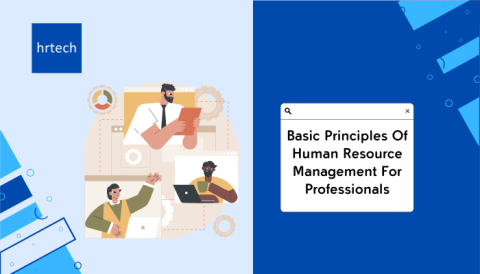Preparing for an HR screen interview can be a daunting task, especially when you’re unsure of what to expect. This initial step in the hiring process is crucial, as it can significantly impact your chances of advancing to further stages. Job seekers often struggle to strike the right balance between showcasing their skills and fitting into a company’s culture, which this interview aims to address.
In this blog, you will learn how to navigate your HR screen interview effectively. From understanding the interview’s purpose and preparing essential questions to exploring company culture and role expectations, you’ll be equipped with the tools to leave a lasting impression.
Understanding the Purpose of the HR Screening Interview
The HR screening interview is typically the first step in the hiring process, helping the company get to know the candidate. It’s not just about checking if the candidate meets the job requirements but also about assessing whether they fit within the company culture.
1. Information exchange and evaluation
This part of the interview serves two main purposes:
- Exchanging information: Sharing important details about the company, the role, and the hiring process.
- Evaluating fit: Determining if the candidate aligns with the company’s needs, both in terms of qualifications and culture.
The HR representative uses this initial conversation to set the stage for the rest of the hiring process.
2. Assessing cultural fit
Understanding if the candidate is a good cultural fit is essential. Here’s why:
- Alignment with company values: Does the candidate share the company’s values and work style?
- Team integration: Will the candidate fit well with the team and contribute positively to the work environment?
3. Verifying qualifications
The HR screen interview is also an opportunity to confirm that the candidate meets the basic qualifications for the role. This includes:
- Work experience: Reviewing the candidate’s relevant professional background.
- Education: Checking if the candidate has the required academic qualifications.
- Key skills: Evaluating whether the candidate possesses the essential skills for the role.
- For more technical roles, a preliminary check of technical abilities may be done to ensure the candidate meets job-specific requirements.
Understanding these components allows you to approach the HR screen interview with clarity and purpose, making it an opportunity to shine.
Benefits of the HR screening interview
By focusing on these key areas, the HR screening interview helps:
- Narrow down the candidate pool: Filter out candidates who aren’t a strong fit for the role early in the process.
- Save time and resources: Helps both the company and the candidate move forward with a more focused approach.
- Create a positive first impression: A well-managed screening process can leave candidates with a good impression of the company, which makes them feel valued and respected.
In short, the HR screening interview is a crucial first step in the hiring process that ensures candidates meet both the job requirements and the company culture.
Tools and insights from hrtech can provide companies with better ways to assess cultural fit, ensuring they find candidates who align well with organizational values.
How to Prepare for the HR Screening Interview?
Preparing for an HR screening interview is key to standing out in a competitive job market. By taking a few simple steps, you can demonstrate your genuine interest in both the company and the position.
1. Research about the company
Before your interview, take the time to learn about the company. This will show you are serious about the role and committed to aligning with the organization’s goals and values. Here’s how to do it:
- Understand the company’s mission & values: Get familiar with the company’s mission statement and core values. For example, Pfizer’s mission is “Breakthroughs that change patients’ lives.” By understanding these guiding principles, you can tailor your conversation to align with them, demonstrating you’re invested in contributing to the company’s success.
- Stay updated on recent developments: Keep an eye on the company’s recent initiatives, projects, or accomplishments. This helps you stay relevant during your interview and shows that you’re proactive about learning about the company’s trajectory.
2. Understand the role and required skills
Next, dive deep into the job description to get a full understanding of the role. Here’s what you need to focus on:
- Review key competencies: Identify the main skills and qualifications required for the position. Reflect on your own experiences that match those needs and be ready to discuss them during the interview.
- Spotlight your relevant experience: Think about specific examples from your past roles that showcase the skills the job requires. This will help you present yourself as the ideal candidate for the position.
- Clarify role ambiguities: If the job description leaves any questions or confusion, don’t hesitate to ask for more details during the interview. This shows you’re thorough and detail-oriented.
3. Prepare your questions
Having a set of well-thought-out questions is a key part of preparing for an HR screening interview. It demonstrates your interest and engagement in the company and role. Here’s how to make your questions count:
- Ask insightful questions about the company: Show interest in the company’s culture, growth opportunities, and team dynamics. This helps you assess whether the company is the right fit for you as much as vice versa.
- Evaluate company fit: Ask questions that will give you insight into whether the company’s values align with yours and if the work environment matches your career goals.
By focusing on these areas, you’ll be well-prepared to tackle your HR screening interview with confidence, making a strong impression and increasing your chances of success.
Knowing how a company adopts cutting-edge HR technology, with guidance from experts like hrtech, might show your genuine interest in how progressive the company is.
10 Key Questions to Ask About the Company During the Interview?
Once you’ve made a great first impression in your HR screening interview, it’s time to switch gears and ask important questions that will help you learn more about the company.
1. Inquire about the company’s evolution and future
Understanding where the company is heading can give you a sense of its stability and growth potential. Consider asking:
- “What are the company’s plans for growth in the next few years?”
- “How does the company plan to expand or innovate in the near future?”
These questions will help you understand whether the company is on a growth trajectory or if it’s more focused on maintaining the status quo. It’s important to see if their future plans align with your own career goals.
Advanced analytics and insights from hrtech could also give you an edge by providing industry trends and forecasts.
2. Understand the company culture and initiatives
Company culture greatly impacts your job satisfaction, so it’s essential to know if it’s the right fit for you. Try asking:
- “Can you describe the company culture and how it supports employee development?”
- “What are some traditions or events that employees enjoy here?”
These questions will give you insight into whether the company’s values align with your own and if the work environment suits your preferences.
3. Opportunities for professional and personal growth
Everyone wants to grow in their career. You can ask about the company’s approach to professional development by asking:
- “What training or development programs does the company offer?”
- “How are performance reviews conducted, and how often are they held?”
This will help you gauge the company’s commitment to helping its employees develop their skills and advance their careers.
4. Inquire about the role
To truly understand the position you’re applying for, ask questions about the role itself. This shows that you’re serious and want to ensure it’s the right fit for both you and the company. Consider asking:
- “What are the primary goals and expectations for this role?”
- “What are the biggest challenges someone in this position might face?”
Understanding the role’s expectations will give you a clearer idea of what success looks like, while questions about challenges will help you prepare for potential obstacles.
A great question to ask during HR screens is ‘Why is this role open?’ This can provide insight into whether the position is new, a backfill or whether there have been ongoing challenges in finding the right candidate. Understanding the context behind the job opening can reveal much about the company’s situations and priorities. If time is limited, this could be a critical question to prioritize.
5. Explore the team you’ll be joining
It’s important to understand the team dynamics before joining. Consider asking questions about the team’s structure and culture:
- “How is the team structured, and how do team members collaborate?”
- “Can you share a recent example of successful teamwork within the department?”
This will give you an idea of the team’s working style and how you might fit in.
6. Feedback and management style
Understanding how feedback is given and how the team is managed is key to your growth and success in the role. You can ask:
- “What is the management style of the hiring manager?”
- “How is feedback typically provided?”
These questions will help you understand what day-to-day life will be like and whether the management style suits your needs.
7. Team challenges and achievements
Understanding the challenges the team has faced and how they’ve overcome them can provide valuable insight into their resilience and problem-solving abilities. You might ask:
- “What was the biggest challenge the team faced last year?”
- “How do you celebrate team successes?”
These questions will give you an understanding of the team’s strengths and how they approach obstacles and achievements.
8. Discussing compensation and work-life balance
It’s essential to understand the company’s compensation structure and its approach to work-life balance. While discussing salary and benefits, consider asking:
- “Can you share the budgeted salary range for this position?”
- “What benefits does the company offer, such as health insurance or retirement plans?”
Understanding compensation and benefits helps you assess whether the company offers a competitive package.
9. Flexibility and remote work options
With the rise of remote work, it’s important to understand the company’s approach to work flexibility. You can ask:
- “What is the company’s policy on remote work?”
- “How does the company support employees who work remotely?”
This helps you determine if the company’s work policies fit your preferred work style.
10. Work-life balance
To better understand how the company values work-life balance, ask about their vacation and stress management policies:
- “How does the company support work-life balance for its employees?”
- “What resources does the company offer for managing stress?”
Asking these questions shows that you value a healthy work-life balance, and it helps you gauge the company’s commitment to employee well-being.
This YouTube video offers insightful tips on preparing for an HR screen interview, such as emphasizing storytelling over clichés and understanding the purpose of the interview, among others, and can be a useful resource for you to keep handy.
Alright, now that we’ve got a handle on remote work vibes, let’s dive into mastering the art of active listening during your interview—it can be game-changing!
How Can Active Listening and Thoughtful Responses Enhance Your Engagement?
During your HR screening interview, engaging effectively through active listening and meaningful responses is crucial in leaving a strong impression. By carefully listening to the interviewer and responding thoughtfully, you signal your genuine interest in the role. It’s important to be present and react appropriately to the conversation flow.
Next Steps
- Clarify next steps:
Ask about the decision-making process and timelines, e.g.:- “Who will decide on my application?”
- “What factors influence the hiring decision?”
This shows you’re proactive and interested.
- Industry-specific questions:
Tailor questions to the role or industry to stand out, e.g. ask about challenges specific to the position. Request feedback to show your willingness to improve. - Thank-you note:
Send a thank-you note within 24 hours. Highlight key points from the interview to reinforce your interest and leave a positive impression.
Conclusion
Asking the right questions in your HR screen interview sets the stage for a positive impression. It shows your genuine interest in the role and the company. Thoughtful, tailored questions highlight your preparedness and enthusiasm. By aligning your questions with the company’s values and recent updates, you demonstrate your commitment and help visualize how you can contribute and succeed in their environment.
And if you’re looking for additional tools to optimize your preparation or streamline HR processes in your organization, hrtech provides innovative solutions to enhance hiring efficiency and improve candidate experience. Explore their cutting-edge insights to gain an edge in your career journey!
Content Writing Checklist Template
Owner: Robin Francis
| Checklist | Category | Metric | Definition |
| General Writing Guidelines | Intent Check | Is the keyword relevant to the business of the customer?Is the blog outline free of repeated headlines? [Refer top ranking blogs on Google for that keyword to check for repetition and check the optimal word count] | |
| General Writing Guidelines | Intent Check | Does the blog address the ICP (Ideal Customer Profile) | |
| General Writing Guidelines | Intent Check | Is the CTA mentioned optimal to the search intent? CTA through register here | |
| General Writing Guidelines | Intent Check | Does the blog speak to the reader in the intended location of the reader and also where the customer is selling? | |
| General Writing Guidelines | Research | Fact check and strength of the source (YMYL or generic) | |
| General Writing Guidelines | Research | Depth of the content [should not be thin] | |
| General Writing Guidelines | Flow of the article | Transition phrases/ words between paragraphs Voice, Tone and Writing Style Voice should 80% active voiceTone: Professional, semi professionalWriting Style: Conversational and engaging | |
| General Writing Guidelines | Sentence Construction | Sentence Length: All sentences should be max 15-25 words.Grammar: tense consistency, subject-verb agreement, proper usage of colonPoints of View (Pronouns): Unless the client asks otherwise, an ideal writeup is in the 2nd person. | |
| General Writing Guidelines | Formatting | Font Style: Proxima Nova (or client-specific)Title (H1) Font Size: 20 Subhead Font Size: 16 for H2 and 14 for H3Normal Text Font Size: 12Line Spacing: 1.5Headers’ Formatting Consistency: Title case (or sentence case if asked by the client) | |
| Client Specific | CTA | Ideally two-three, one in the start—after the first or second subhead, then in the middle (based on applicable location contextually) and finally at the end. ✅ Home Page & Marketplace Page (seldom you can add but prefer landing pages like certification page and the contact us page) ✅ Certification Page (for HR Training Courses and Certification programs) ✅ Contact Us Page (For encouraging to get readers consultation/advice from HR experts at hrtech) (Most Prefered) (By pitching subtly about getting advice or help… they can contact us) | |
| Client Specific | Listicles | Whenever you’re writing a roundup review “Top 10 Software… or Best 10 Software…” Type posts, please always make sure to mention at least 50%-60% software solutions from the client website marketplace first. | |
| Client Specific | Internal Links | Please mention at least 4-5 internal links/post Use relevant keyword rich anchor text. Use the search function on the website to search for relevant keywords and internal link those blog posts. |




